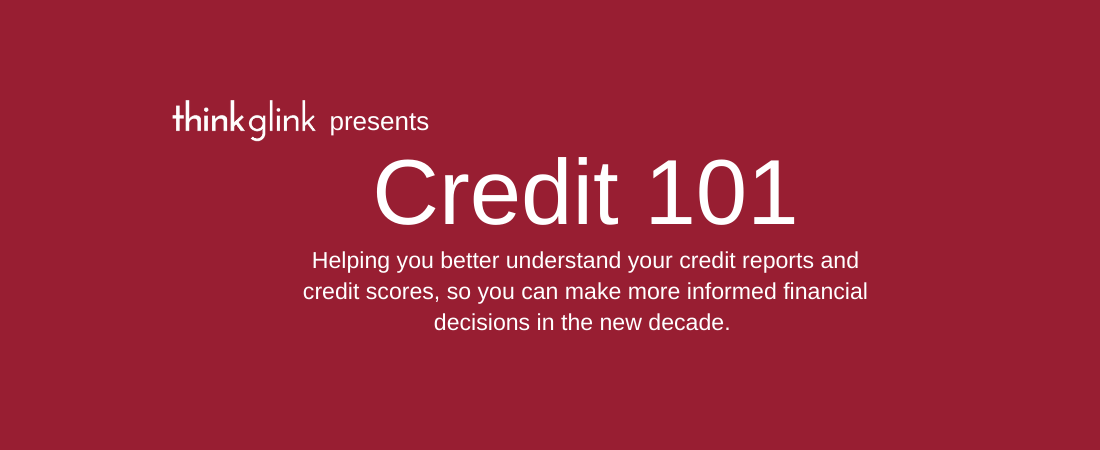
Post pandemic, credit continues to be a buzzword for consumers, but many people are unsure what part credit plays in their personal finances. In a new series, Credit 101, Ilyce Glink, an award-winning personal finance columnist and CEO of the financial wellness platform Best Money Moves, details important information you need to know about your credit reports and scores.
Welcome to Credit 101, a series that explores some basic concepts about credit reports and credit scores. Most consumers know that it’s important to maintain good credit. But you may be less certain about how credit impacts your personal finances. You may be unsure what you can do to ensure your credit reports are accurate and complete. You may not know how your credit reports translate into their credit scores. Indeed, you may not even know what might be included in your credit reports.
Good news: our Credit 101 Series, sponsored by Equifax, is here to help answer your credit questions, so that you can better understand the information in your credit reports.
What Is a Credit Report?
Credit reports summarize your history of borrowing and paying back debt. The three nationwide credit bureaus that provide credit reports nationwide are Equifax, Experian and TransUnion. Your credit reports from each may not be identical, as some lenders and creditors may not report to all three. Some may report to only two, one or none at all. Credit reports offer prospective lenders and creditors a way to evaluate how you’ve handled repaying your debt in the past. This helps them decide whether to offer you credit – and at what terms. Prospective employers or landlords may also access your credit reports to help them decide whether to offer you a job or a lease.
Generally, your credit reports include your existing debt and outstanding balances owed for each account, as well as your payment history. The debts listed might include:
- Lines of credit, such as credit cards or home equity lines of credit
- Installment loans, like personal loans, auto loans, mortgages, student loans
- Personally-guaranteed business loans
- Past inquiries into your credit and they can include public records, such as bankruptcy
- Accounts you have paid in full
- Other closed accounts
Your credit report information — along with other information you provide lenders, such as your income — will help them decide whether to approve or deny your application for credit and to set the interest rate and terms on what you borrow.
Why Is It Important to Know What’s in Your Credit Reports
Your credit history reflects the way you’ve borrowed and repaid your various debts. And various entities (such as nationwide credit reporting bureaus or analytics companies like FICO) use the information. They create a variety of credit scores that are often used to tell lenders about your creditworthiness. As your credit reports reflect how you’ve handled credit in the past, lenders and creditors use that information to help them understand how you’re likely to handle credit in the future.
It’s important to make sure the information in your credit reports is accurate and complete. If you review your credit reports and find information you don’t recognize, such as accounts you did not open, it could indicate that you’ve been a victim of identity theft.
What’s in Your Credit Reports?
While Equifax, Experian and TransUnion each provide credit reports, the information included on each credit report may vary from agency to agency. This happens because creditors, lenders, court systems and other entities may not report the information they have about you to each nationwide credit reporting bureaus. For example, a regional retailer that offers a credit card may only report your account to one or two of the three nationwide credit reporting bureaus. Some do report to all credit bureaus but others may not.
Generally, all credit bureaus include the same categories of information on your credit reports:
1. Personal Identifying Information
Your credit reports list your name, address (current and former or other addresses), Social Security number and birth date, all of which help connect you to your credit history.
2. Credit Accounts
Unless you have little to no prior credit history (known in industry jargon as “thin file” or “nofile”), your credit accounts often comprise the most important section of your credit reports.
This section will generally show the balance and payment history for each account, as reported by your lenders and creditors. It may show whether your credit and loan accounts are open or closed, are being paid late or paid as agreed. Your credit accounts may be separated into:
- Mortgage accounts (including primary mortgages, second mortgages and home equity lines of credit)
- Installment accounts (like auto loans)
- Revolving accounts (including credit cards)
- Other loans.
For each account, you may also see:
- The credit limit
- The original loan amount (sometimes referred to as the maximum limit)
- The debt-to-credit ratio (or how much you owe compared with what your maximum available credit limit is for the account).
- If one of your credit reports contains a summary, you may see a “total open accounts” section. This lists all of your open credit accounts. It also lists the total amount you owe, the total debt-to-credit ratio, the total monthly payment amount, and the number of accounts with a balance.
Your credit reports usually list the dates the accounts were opened. They may also include:
- The age for each type of credit account, oldest to newest
- The average account age
Account age is an important piece of information on your credit reports. A a higher average account age generally demonstrates stability to a prospective lender or creditor.
3. Inquiries
Your credit reports include a list of those companies that have accessed your credit history. Typically, inquiries are divided into two different categories, “soft” and “hard inquiries.”
Soft inquiries do not impact your credit scores. They include general maintenance activity such as when you pull a copy of your own credit history or when your current lenders and creditors conduct periodic reviews of your accounts. A soft inquiry may also occur when a company extends you firm offer of credit or insurance. It is also known as a prescreened offer.
Hard inquiries generally occur when you apply for credit or certain services and generally do impact credit scores. Multiple inquiries within a short period of time may have a greater impact on credit scores. Hard inquiries remain on your Equifax credit report for two years, although their impact typically lessens over time.
4. Potentially Negative Information
Your credit reports may include a section on potentially negative information. This might include information from public records, late payments (which may be listed as “negative accounts”) or collections.
Public records may include information on select public filings such as a bankruptcy. It may also include related details, such as the date and type of bankruptcy filed. A bankruptcy will remain on your credit reports for either seven or 10 years, depending on the chapter filed.
Your credit reports also contain your payment history which can include negative accounts. Accounts that are not paid as agreed generally remain on your credit history for seven years from the date the account first became past due. A late payment may remain on your credit file for up to seven years from the date of the late payment.
If you don’t pay your bills on time, an account may be turned over to a collection agency. Once you have an account in collections, it may be reported as “a collection account” on your credit reports. It can remain on your report for up to seven years from the date of the first missed payment with the original lender or creditor.
Are Credit Scores Part of Your Credit Report?
Generally, credit reports do not include credit scores. Many financial institutions either provide credit scores for free or as part of a paid service.
Where Can I Obtain a Copy of My Credit Reports?
It’s a good idea to check your credit reports regularly to ensure they’re accurate and complete. Make sure you recognize all of the accounts and activity listed on the report. This can help you ensure your credit reports accurately reflect your credit history. It will also help you detect signs of identity theft if you spot unrecognized activity.
You may receive one free copy of your credit report per nationwide credit reporting agency, per year, from annualcreditreport.com.
You can also create a myEquifax account (at www.myEquifax.com) to receive six free Equifax credit reports every 12 months. Or you can click “Get my free credit score” on your myEquifax dashboard to enroll in Equifax Core Credit™. That will give you a free monthly Equifax credit report. You’ll also get a free monthly VantageScore 3.0 credit score, based on Equifax data. A VantageScore is one of many types of credit scores.







Well written and useful information. It is like going to learn about credit, simple and clear. Valuable service. May be after the 10 sessions, these can be published as a booklet for the public. Will be useful for youngsters
vijaya
Thanks, Vijaya,
Appreciate the comment and the suggestion. We’ll see if we can publish these in at least an ebook format. We’ll have them as videos as well, so watch for those soon.
Best,
Ilyce